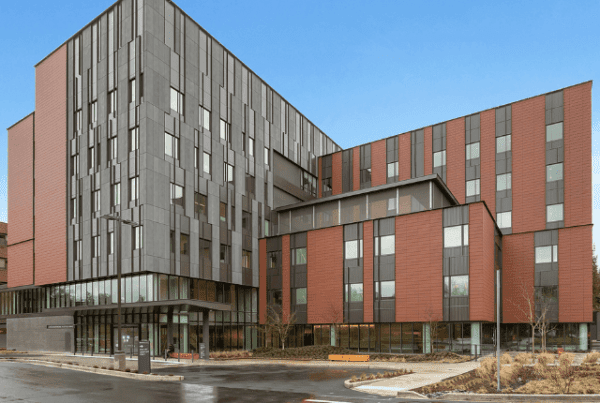Each year, our government relations director, Ian Goodhew, spends substantial time away from the UW campus, traveling to Olympia and Washington, D.C. to advocate for (and against) legislation that will impact UW Medicine and its ability to continue advancing our mission of improving the health of the public.
This work includes spending time with local, state and federal policy makers and legislators; researching every budget and policy proposal – good or bad – that may affect UW Medicine’s clinical care, research and educational programs; and pushing for the best outcomes for us.
Ian works in close coordination with the University’s Office of External Affairs, including Sarah Castro, UW director of federal relations; Joe Dacca, UW director of state relations; and Sally Clark, UW director of regional & community relations. He also collaborates with the Washington State Hospital Association, Washington State Medical Association, our UW Medicine labor union partners, and federal healthcare provider associations to ensure that UW Medicine’s legislative and policy priorities are front and center with key decision makers.
Ian also works to connect our faculty and staff to policy makers to further UW Medicine’s mission. To that end, I’m pleased to share a summary of his efforts from the recently concluded 2019 Washington state legislative session, which produced some important outcomes for UW Medicine.
The session adjourned on April 28, after passing the 2019/21 state operating and capital budgets. The legislature made significant investments in our clinical care for safety net patients and in support of the key role we play in educating our state’s next generation of healthcare professionals.
Highlights for UW Medicine in the upcoming 2019/21 biennial state budget include:
-
- $5 million in new funding to support patient safety net care at Harborview and UW Medical Center
-
- An important exemption for Harborview Medical Center from having to pay an annual state business and occupancy tax, which will save $8 million per year. Partnership with SEIU 1199 Northwest helped lead to this success.
-
- $33 million for the initial design phase of a new behavioral health teaching hospital to be built on the Northwest Hospital campus. Plans for the facility include:
-
- 50 beds for the existing Geropsychiatry Center, which currently has 27 beds
-
- 50 new long-term adult behavioral health beds (90-180 days)
-
- 50 acute-care beds for patients with mental illness and other medical conditions
-
- A transfer of the voluntary behavioral health patients from UW Medical Center
-
- Behavioral health instruction across the spectrum of care providers
-
- $33 million for the initial design phase of a new behavioral health teaching hospital to be built on the Northwest Hospital campus. Plans for the facility include:
-
- Reflecting the critical need for improvements in and greater access to mental health care, the state allocated significant funding to the Department of Psychiatry and Behavioral Sciences, including:
-
- $3.5M annually to create and operate a first-of-its-kind, 24/7 tele-behavioral health video call center, to be housed at the new behavioral health facility on the Northwest Hospital campus
-
- $2.4M annually to add four new psychiatry residency training positions at Harborview Medical Center
-
- Funding for two new child and adolescent psychiatry fellowships
-
- $500K for pre-design work for a Behavioral Health Institute (BHI), possibly as a collaboration between UW Medicine, King County and the State of Washington
-
- $1 million in one-time federal funding to Harborview Medical Center to develop programming for substance abuse treatment
-
- Reflecting the critical need for improvements in and greater access to mental health care, the state allocated significant funding to the Department of Psychiatry and Behavioral Sciences, including:
-
- $60 million in construction funding to create and build a new Health Sciences Education building, which will provide interdisciplinary teaching space for all six health science schools, including the UW Schools of Medicine, Public Health, Nursing, Dentistry, Pharmacy and Social Work
-
- Additional funding, included:
-
- Increased funding for the Institute for Stem Cell & Regenerative Medicine (ISCRM)
-
- Funding for a number of telemedicine Initiatives including behavioral health in K-12 schools, autism, dementia, hepatitis B and Parkinson’s disease
-
- Funding for firearm injury-related research at the Harborview Injury Prevention and Research Center (HIPRC)
-
- Additional funding, included:
More information about the 2019/21 state budget for UW Medicine and the University of Washington is available here.
I would like to recognize Ian Goodhew and the extended government relations team, who work so tirelessly to understand the issues and communicate with legislators on our behalf. We are indebted to them for their continuing efforts to support our mission.
Sincerely,
Paul G. Ramsey, M.D.
CEO, UW Medicine
Executive Vice President for Medical Affairs and
Dean of the School of Medicine,
University of Washington

